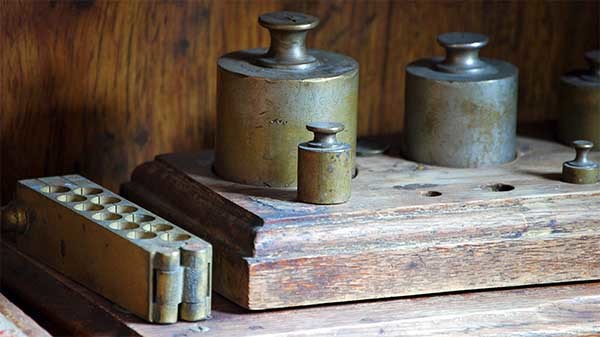What Is the Risk of Postponing My Scale Calibration?

Whether you use medical or industrial scales in your workplace, it’s important to ensure that they’re regularly calibrated.
Even a high quality scale will not remain accurate forever. General wear and tear and prolonged use will cause a scale to slowly become inaccurate.
That’s why you should regularly get your scale calibrated. Companies like Marsden offer an optional service when purchasing your scale for regular check ups to ensure that your scale is always accurate.
These check ups extend the life of your scale, saving you the cost of replacement in the long term.
What Is Scale Calibration?
Scale calibration is when a weighing scale is tested using a precise reference weight.
Trained technicians will place a standard mass, such as a kilogram, onto a scale and check which number the scale displays. This will help them to determine how accurate/inaccurate the scale is reading. The scale is then returned to the calibration tolerance or doesn’t need any adjustment depending on the difference.
There are a number of tests that a scale goes through during calibration, such as the eccentricity test, repeatability test, weighing test and minimum weight test.
After recalibrating the scale, the technicians will draw up a calibration certificate for your records. This is a document that proves your scales are accurate and provides information on when your scale was last serviced.
Why Should I Calibrate My Scale?
Essentially, scale calibration is for a scale what an MOT is for your car. Without a regular calibration, your scale can’t perform at the optimal performance you may want.
The accuracy and reliability of your scale will degrade slowly over time and a regular calibration can prevent you from getting inaccurate results. That means that foregoing your calibration can be a risky decision, which could result in unscheduled down time, bad product quality and even product recalls.
Therefore, the overall cost of skipping your scale calibration could result in a much higher cost than the calibration itself.
What Are the Benefits of Scale Calibration?
For most businesses, the main reason to get your scale calibrated is for cost saving reasons. By calibrating your scales, you are ensuring that you’re always getting accurate results. This avoids wasted materials, and reworks costs.
It may also be the difference between needing to replace your products or not, depending on your industry.
In industries where products are sold based on weight, it is a legal requirement to use a Trade Approved scale. This is for the safety of the customer and not using a Trade Approved scale can result in high fines for your business. Therefore calibrating your scale regularly is important for avoiding financial penalties, legal action or complaints.
Similarly, if you have a scale that is used for weighing pallets or even weighing a lorry, then this scale needs to be accurate to adhere to regulations and avoid any fines from overloaded vehicles.
For medical environments, using calibrated equipment ensures that you get reliable measurements. Considering that a patient’s weight is often taken into account when calculating drug dosages, it’s imperative that your scales are accurate and reliable.
One final benefit of calibration is that it can notify you if your scales are getting too old so that you can replace them promptly before results become inaccurate.
How Often Should I Get My Scale Serviced?
We generally recommend getting your scales serviced once a year, in line with the 2009 LACORS report, to ensure optimal performance. However, if you use your scales more often then you may need to get it calibrated more frequently.
If you use them multiples times a week or even multiple times a day then wear and tear will occur faster. Similarly if your scale is used or stored in a location where there is vibration, static electricity or mechanical shock then its accuracy can suffer.
What Are the Risks of Not Calibrating My Scale?
There are different risks for different industries.
For the industrial industry, not using calibrated scales can result in product recalls, angry customers, large fines and even potential lawsuits.
In the medical industry, an accurate weight is required in a number of situations. A patient’s weight is a key component for assessing a patient’s health, as well as diagnosing any conditions, such as cancer, depression and infections. A patient’s weight is also used to calculate how large of a dosage they need for certain drugs and an inaccurate weight reading could result in an overdose. Without an accurate scale for these scenarios, doctors or hospitals could be reported for medical negligence.
Pharmaceutical companies may have a similar issue but on a bigger scale. If drug contents aren’t accurately recorded, doctors and medical professionals may be unable to correctly treat a patient or could even harm a patient.
Further Reading
Although we briefly touched upon it in this blog post, we actually have a whole blog post dedicated to issues that can arise if you don’t have your medical scale serviced.
The 2009 LACORS report outlined the need for accurate scales after more than one in 5 were not set to zero. Read our full review of the report and its effects here.
For industrial scales, we have compiled a list of the top 5 benefits of industrial scale service.